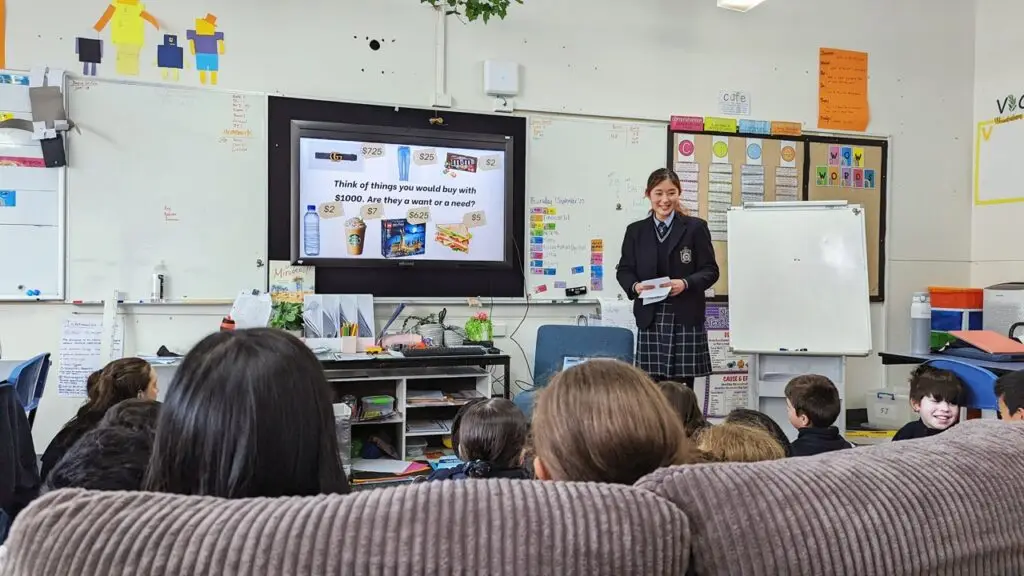I still remember sitting in a classroom, being taught algebra and Shakespeare, but never once learning how to budget, save, or manage money.
That absence has real consequences. Across Australia and the world, students are graduating into adulthood without the most basic financial skills. They don’t know how to open a bank account, plan a budget, or understand interest rates. And while that might sound like a gap in the curriculum, it’s actually a key driver of long-term disadvantage.
I’ve seen how the lack of financial literacy holds young people back, not just academically, but in life. A 2023 OECD report showed that a lack of financial education contributes to long-term inequality, especially in low-income communities. Meanwhile, ASIC research from 2021 showed that many young Australians feel unprepared to make basic financial decisions as they approach adulthood.
For many students in low-income communities, the stakes are even higher. Without guidance or resources, they’re left to navigate the complexities of money on their own, and that often leads to debt cycles, missed opportunities, and stress that carries well into adulthood.
So, in 2021, at the age of 15, I decided to do something about it.
I founded MoneyWise, the first Australian youth-led initiative of its kind that provides free financial literacy education to girls and marginalised communities such as under-resourced or remote schools. We focus on practical skills like budgeting, saving, setting financial goals, and understanding needs versus wants.
What started as a few local school workshops in Melbourne has now grown into a global movement. We’ve delivered over 200 free financial literacy sessions, reaching more than 14,000 students. We’ve distributed 20,000+ educational packs and worked directly with teachers to integrate financial education into school curricula.
To complement our workshops, I also wrote and published Money Made Simple, a beginner-friendly book that makes money skills engaging for young readers. It’s now available in over 300 public libraries and schools internationally, including in Cambodia and Tanzania, and is used in classrooms as a teaching resource thanks to partnerships with the largest education NGOs like CUFA, the Australian Literacy and Numeracy Foundation, Cambodia Community Dream Organisation and others.

But I realised early on that financial literacy was only one part of the puzzle.
Many young people, especially those without connections or guidance, don’t know how to navigate their way toward careers, higher education, or the causes they care about. That’s why I launched the Brighter Futures Youth Podcast, a space where young people can access honest, practical advice from inspiring leaders across industries.
From interviewing the Minister for Education and Deputy Premier of Victoria, Director of AsiaLink, Founder of Girls Into VC, and many others, I’ve aimed to break down the invisible barriers like gender stereotypes, self-doubt, and access to information that stop young people from pursuing their dreams. The podcast has now reached over 50,000 listeners in 20+ countries on Apple Podcasts and Spotify. It’s become a diverse growing community, one built on the belief that knowledge should be accessible to all, regardless of gender or background.
Through MoneyWise and Brighter Futures, I’ve learned that change doesn’t always require permission. It just takes action. Young people are powerful drivers of impact, especially when they’re given the right tools and platform.
And my goal is to make financial education a right, not a privilege. So that every child, no matter where they’re born, has the knowledge and confidence to shape their own future.
Top photo source: Annie Zhou/LinkedIn

